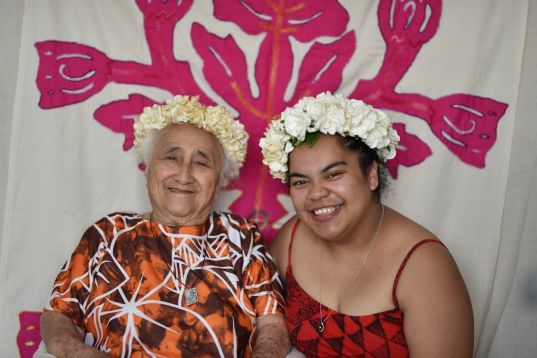Coffee and kōrero to tackle contraception and reproductive health
‘As a society, we still don’t like the fact that young people have sex.’
That was the type of forthright kōrero happening over coffee at a recent forum called “Kawhe and Kōrero”. Close to 30 academics, community advocates and health professionals tilted their mugs to tackle the tricky but important kaupapa of contraception, reproductive health and young New Zealanders.
Te Hiringa Hauora | Health Promotion Agency put the call out to experts in their field to bring their experience, ideas and hopes to an online discussion on what the sector needs to further support young people and how Te Hiringa Hauora might help. The session included a Pasifika-focused fono with champions from a range of fale.
“It was awesome to discuss different ideas on ways we can connect and help our Pacific youth as this is a very difficult subject to tackle,” says Danielle Tangimetua-Samani, (Kūki 'Āirani), a practice nurse at Tāmaki Health.
“The different ideas help us improve the gaps in healthcare and health promotion to help our youth. The talanoa was a great way to connect with different people playing different but major roles that our youth need. I’m looking forward to continuing the conversation with everyone involved.”
Major themes included the health system not supporting easy or accessible discussions about contraception and reproduction, the tapu nature of the subject in communities and a lack of prioritisation of women’s health.
Academics and practitioners spoke of challenges including stigma, workforce, sidelining of Māori and Pasifika worldviews and a lack of timely, accurate information for rangatahi. Solutions were also top of mind including sharing innovation, creating safe and culturally relevant spaces for kōrero-tālanoa with young people, work on myth busting and elevating thought leadership from Māori and Pasifika research.
“It can be hard to imagine what things could be like for reproductive health and contraception because we're often asked to restrict our thinking to the current system,” says Kim Southey (Ngāti Porou, Ngāti Kuia) of sexual and reproductive health organisation Te Whāriki Takapou.
“But the zui felt like a real, open wish-list, 'think tank' opportunity. I hope there are more opportunities like this to discuss the potential for change across health kaupapa. We want to do things differently in the health system so imagining that is a good start.”
The zui was part of the First 1,000 Days programme at Te Hiringa Hauora which focuses on equitable outcomes for mothers and babies from generation to generation. The work includes the period before conception as it is a time to secure the wellbeing of future parents, so that if a pregnancy does happen, the first 1,000 days have the best chance of being positive for both the parents and the child.
“Robust evidence shows it is critical to invest in the first 1,000 days, so that every child gets the strongest start to life. We must act early. Even earlier than we think,” says Tanya Radford, programme lead for First 1,000 Days.
“In the past we focused on an individual’s actions to prevent fetal alcohol spectrum disorder (FASD) and enact alcohol-free pregnancies. We are now working in different ways that support whole communities to find solutions to these and other maternal wellbeing issues – such as improving equitable access to contraception.”
As a result of the zui Tanya says Te Hiringa Hauora is considering how to best support emerging solutions for example helping others to create a safe space to talanoa in the Pacific community so that young people and their villages have comfortable and relevant avenues to get the support and information they are entitled to and need.
“We are very grateful to all those who attended “Kawhe and Kōrero” and look forward to working with them again in the near future.”
Image: Dani and her grandmother who raised her.

